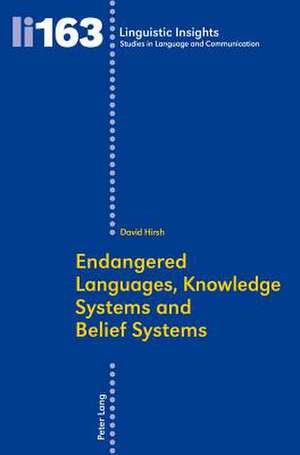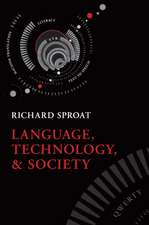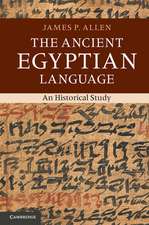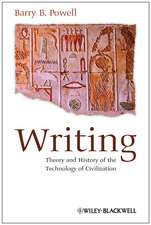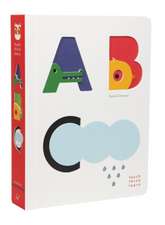Endangered Languages, Knowledge Systems and Belief Systems: Lectiones Inaugurales, cartea 163
Autor David Hirshen Limba Engleză Paperback – 13 ian 2014
Preț: 418.97 lei
Preț vechi: 544.12 lei
-23% Nou
Puncte Express: 628
Preț estimativ în valută:
80.18€ • 83.40$ • 66.19£
80.18€ • 83.40$ • 66.19£
Carte tipărită la comandă
Livrare economică 14-28 aprilie
Preluare comenzi: 021 569.72.76
Specificații
ISBN-13: 9783034312325
ISBN-10: 3034312326
Pagini: 153
Ilustrații: illustrations
Dimensiuni: 152 x 211 x 17 mm
Greutate: 0.23 kg
Editura: Peter Lang Gmbh, Internationaler Verlag Der W
Seriile Lectiones Inaugurales, Linguistic Insights
ISBN-10: 3034312326
Pagini: 153
Ilustrații: illustrations
Dimensiuni: 152 x 211 x 17 mm
Greutate: 0.23 kg
Editura: Peter Lang Gmbh, Internationaler Verlag Der W
Seriile Lectiones Inaugurales, Linguistic Insights
Notă biografică
David Hirsh is senior lecturer in TESOL (Teaching English to speakers of other languages) at the University of Sydney. His research focuses on second language development and indigenous language revitalization. He has published in Reading in a Foreign Language and Revue Française de Linguistique Appliquée, and in the volumes Teaching Academic Writing: An introduction for teachers of second language writers (2009) and Continuum Companion to Research Methods in Applied Linguistics (2010). He is co-editor of University of Sydney Papers in TESOL.
Cuprins
Contents: Language situation - Endangered languages - Policy change - Language revitalisation - Knowledge systems - Belief systems - Preserving cultural identity.
